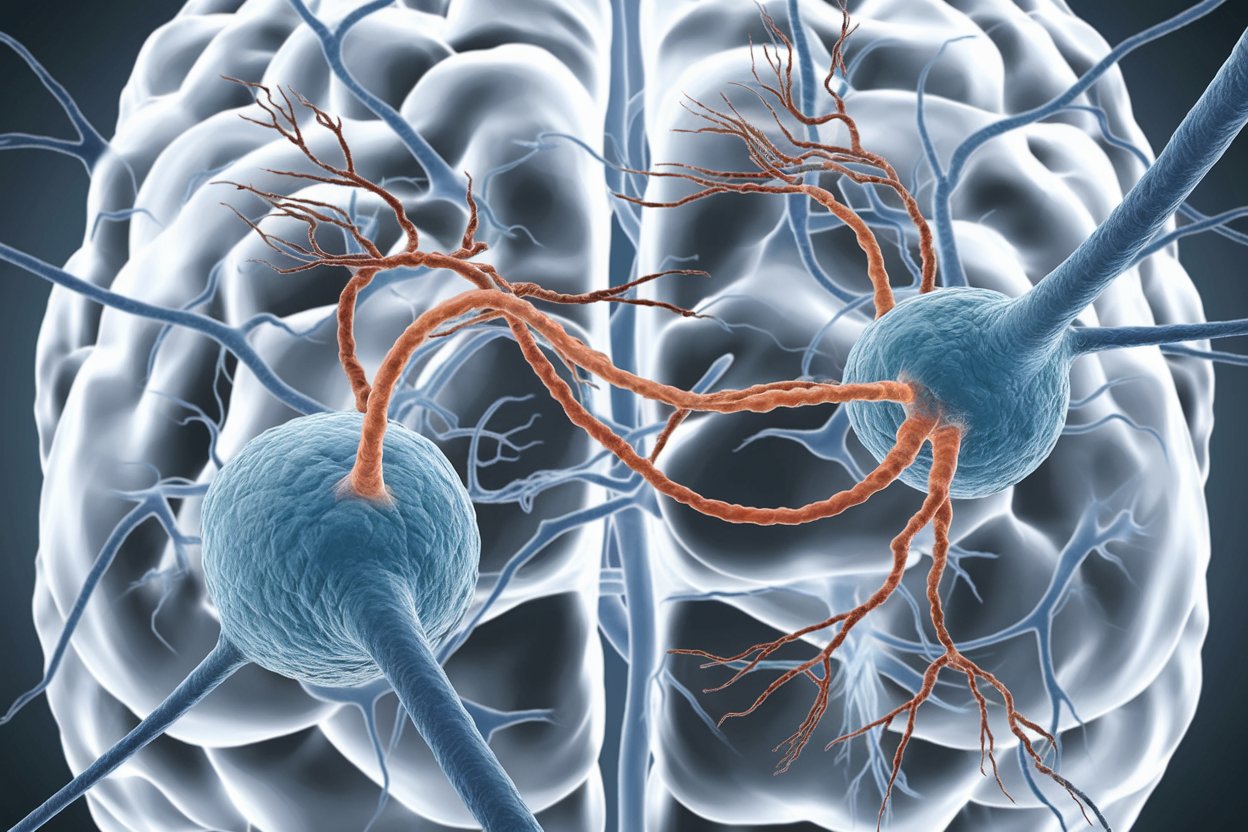
Möbius Axonal Neuropathy Hypogonadism might sound like a mouthful, but understanding it can be simpler than you think. This rare condition affects the nerves controlling facial muscles and other parts of the body. Möbius syndrome is often present from birth, leading to facial paralysis and limb abnormalities. Axonal neuropathy involves damage to the nerve fibers, causing muscle weakness and loss of sensation. Hypogonadism means the body produces low levels of sex hormones, affecting growth and development. Together, these conditions create a unique set of challenges. By learning about Möbius Axonal Neuropathy Hypogonadism, you can better understand its impact on those who live with it daily.
Key Takeaways:
- Möbius Axonal Neuropathy Hypogonadism is a rare genetic disorder affecting facial muscles, nerves, and reproductive functions. It requires specialized care and support for affected individuals and their families.
- While there is no cure for Möbius Axonal Neuropathy Hypogonadism, treatments such as physical therapy, hormone replacement, and speech therapy can help manage symptoms and improve quality of life. Support groups and research also play crucial roles in understanding and addressing this condition.
Understanding Möbius Axonal Neuropathy Hypogonadism
Möbius Axonal Neuropathy Hypogonadism is a rare genetic disorder. It affects multiple systems in the body, leading to a variety of symptoms. Here are some intriguing facts about this condition.
-
Möbius Syndrome: This disorder is part of the broader Möbius syndrome, which primarily affects facial muscles, causing facial paralysis.
-
Genetic Mutation: The condition results from mutations in specific genes, often involving the HOXA1 gene.
-
Axonal Neuropathy: This aspect of the disorder affects the nerves, leading to muscle weakness and atrophy.
-
Hypogonadism: Hypogonadism in this context means the body produces insufficient sex hormones, affecting puberty and reproductive functions.
-
Rare Condition: Möbius Axonal Neuropathy Hypogonadism is extremely rare, with only a few documented cases worldwide.
Symptoms and Diagnosis
The symptoms of this disorder can vary widely. Diagnosis often involves a combination of clinical evaluation and genetic testing.
-
Facial Paralysis: One of the hallmark symptoms is facial paralysis, which can affect expressions and eye movements.
-
Muscle Weakness: Patients often experience muscle weakness, particularly in the limbs.
-
Delayed Puberty: Due to hypogonadism, affected individuals may have delayed or absent puberty.
-
Speech Difficulties: Facial muscle paralysis can lead to difficulties in speech and articulation.
-
Swallowing Problems: Some patients may have trouble swallowing, which can affect nutrition and growth.
Treatment and Management
While there is no cure for Möbius Axonal Neuropathy Hypogonadism, various treatments can help manage symptoms.
-
Physical Therapy: Physical therapy can help improve muscle strength and coordination.
-
Hormone Replacement: Hormone replacement therapy can address hypogonadism, aiding in the development of secondary sexual characteristics.
-
Speech Therapy: Speech therapy can assist with communication difficulties.
-
Nutritional Support: Ensuring proper nutrition is crucial, especially for those with swallowing difficulties.
-
Surgical Interventions: In some cases, surgical procedures may be necessary to correct physical abnormalities.
Genetic Counseling and Research
Genetic counseling can provide valuable information for affected families. Ongoing research aims to better understand and treat this condition.
-
Family Planning: Genetic counseling can help families understand the risks of passing the condition to offspring.
-
Research Advances: Scientists are continually researching to uncover more about the genetic basis and potential treatments.
-
Support Groups: Support groups can offer emotional and practical support to affected individuals and their families.
-
Clinical Trials: Participation in clinical trials can provide access to new treatments and contribute to scientific knowledge.
-
Awareness Campaigns: Raising awareness about this rare condition can lead to better support and resources for those affected.
Living with Möbius Axonal Neuropathy Hypogonadism
Living with this condition presents unique challenges, but with the right support, individuals can lead fulfilling lives.
-
Adaptations: Making adaptations in daily life can help manage symptoms and improve quality of life.
-
Education: Educating teachers and peers about the condition can foster a supportive environment.
-
Mental Health: Addressing mental health is important, as living with a rare disorder can be isolating.
-
Community Involvement: Engaging with the community and participating in activities can enhance well-being.
-
Personal Stories: Sharing personal stories can inspire others and raise awareness about the condition.
Final Thoughts on Möbius Axonal Neuropathy Hypogonadism
Möbius Axonal Neuropathy Hypogonadism is a rare condition that combines nerve damage with hormonal imbalances. Understanding its symptoms and treatments can help those affected manage their daily lives better. Early diagnosis is crucial for effective treatment, which often involves a combination of physical therapy, hormone replacement, and sometimes surgical interventions.
Support from healthcare professionals and loved ones plays a significant role in improving the quality of life for patients. Staying informed about the latest research and treatment options can make a big difference.
By spreading awareness, we can foster a more supportive environment for those living with this condition. Always consult healthcare providers for personalized advice and treatment plans. Knowledge is power, and being well-informed can lead to better health outcomes.
Frequently Asked Questions
Was this page helpful?
Our commitment to delivering trustworthy and engaging content is at the heart of what we do. Each fact on our site is contributed by real users like you, bringing a wealth of diverse insights and information. To ensure the highest standards of accuracy and reliability, our dedicated editors meticulously review each submission. This process guarantees that the facts we share are not only fascinating but also credible. Trust in our commitment to quality and authenticity as you explore and learn with us.
